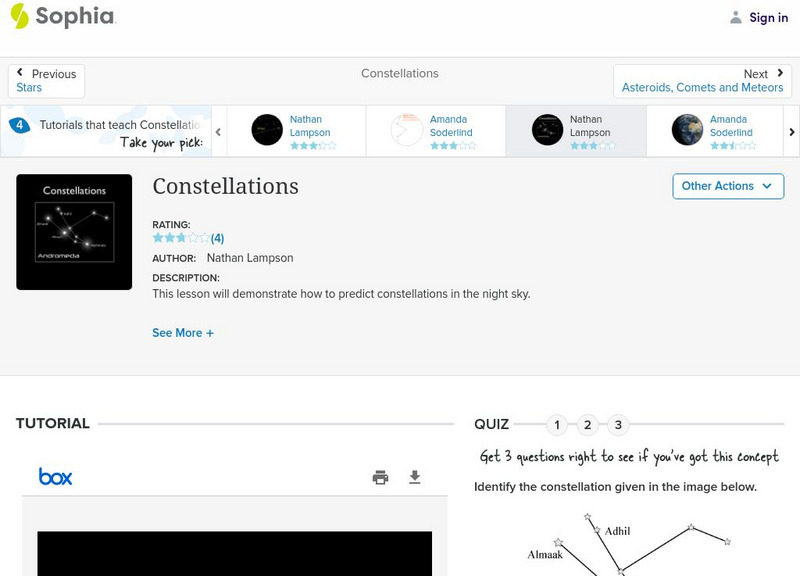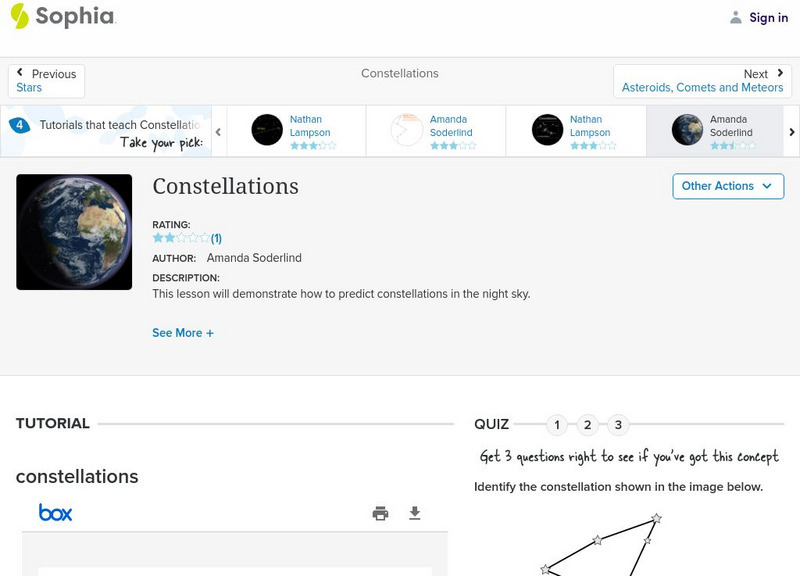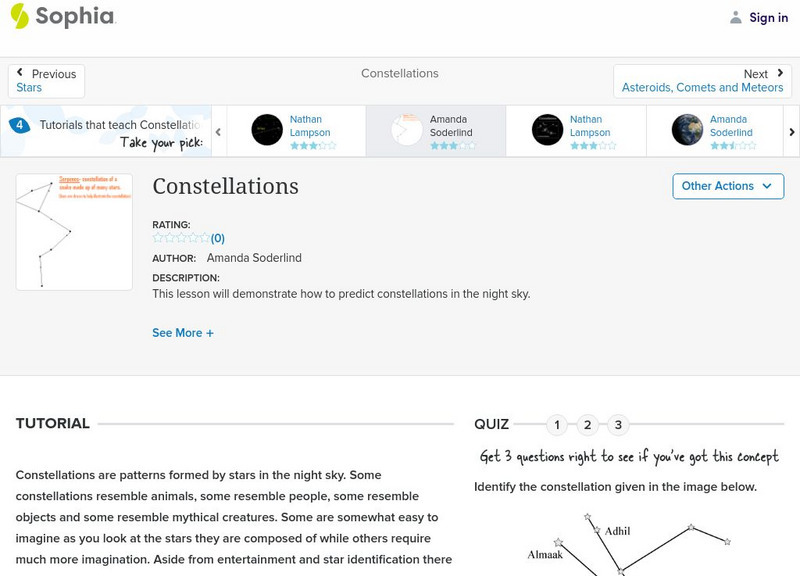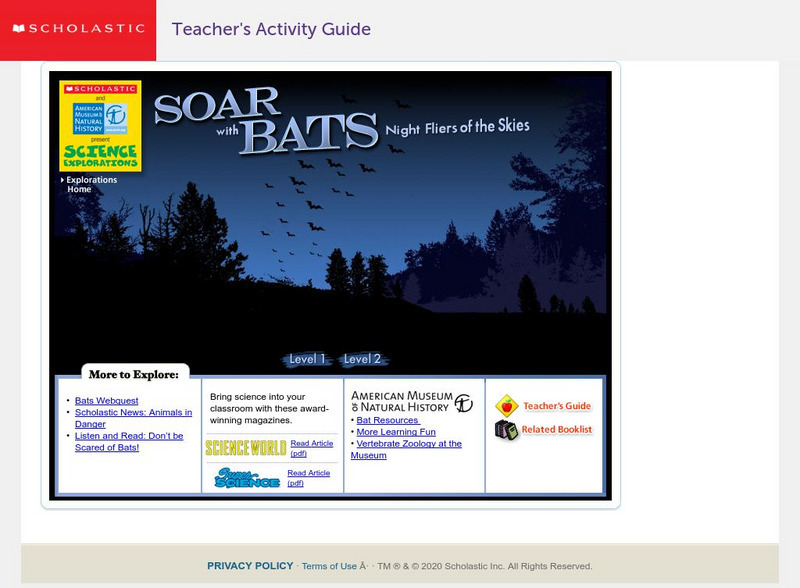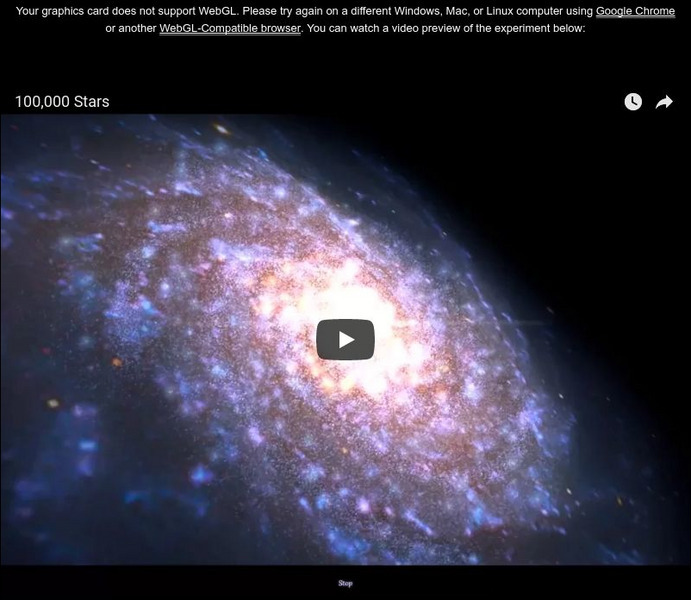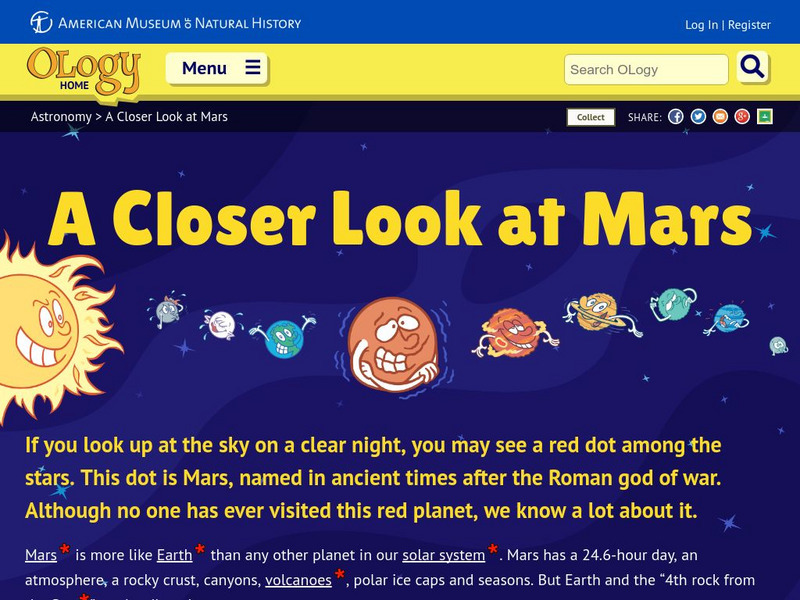Hi, what do you want to do?
E-learning for Kids
E Learning for Kids: Science: Egypt: Why Does the Sun Appear to Move Across the Sky?
Join Imhotep in his journey to figure out where the sun goes at night.
Sophia Learning
Sophia: Constellations: Lesson 2
This lesson will demonstrate how to predict constellations in the night sky. It is 2 of 4 in the series titled "Constellations."
Sophia Learning
Sophia: Constellations: Lesson 3
This lesson will demonstrate how to predict constellations in the night sky. It is 3 of 4 in the series titled "Constellations."
Sophia Learning
Sophia: Constellations: Lesson 1
This lesson will demonstrate how to predict constellations in the night sky. It is 1 of 4 in the series titled "Constellations."
Sophia Learning
Sophia: Constellations: Lesson 4
This lesson will demonstrate how to predict constellations in the night sky. It is 4 of 4 in the series titled "Constellations."
TED Talks
Ted: Ted Ed: How Plants Tell Time
Morning glories unfurl their petals like clockwork in the early morning. A closing white waterlily signals that it's late afternoon. And moon flowers, as their name suggests, only bloom under the night sky. What gives plants this innate...
TED Talks
Ted: Ted Ed: What Is an Aurora?
Why do we see those stunning lights in the northern- and southernmost portions of the night sky? Michael Molina explains every step of the dazzling phenomenon of the Aurora Borealis and Aurora Australis. [4:10]
Scholastic
Scholastic: Science Explorations: Soar With Bats: Night Fliers of the Skies
Two levels of exploration take you on a nighttime bat investigation, offer important vocabulary and definitions, provide a library of articles, and list ideas for bat research and observations in parks and zoos.
Albright-Knox Art Gallery
Albright Knox Art Gallery: 3 D "Special Space" Painting
Jim Dine's Child's Blue Wall combines sculpture and painting. It is both a realistic depiction of a child's bedroom and an abstract painting of a night sky. This lesson plan explores how Dine accomplished these two ideas in the same work...
Other
Chrome Experiments: 100,000 Stars
Zoom in and out to explore our galaxy in this interactive 3D visualization of the stellar neighborhood, including over 100,000 nearby stars.
Better Lesson
Better Lesson: Our Stars
In this lesson, learners will observe and communicate how the stars are in the sky both day and night. The extremely detailed lesson includes photos and videos of the lesson in actions, examples of student's work, materials, parent...
Curated OER
Science Kids: Science Images: Telescope
This photo shows a common telescope used to observe the stars and other astronomy related objects seen in the night sky such as planets, moons and comets.
Smithsonian Institution
Smithsonian American Art Museum: Louise Nevelson
Louise Nevelson is profiled at this site in a format that begins with a brief biographical sketch of her life. Her works are then listed by appearance in the museum's database. Each work is presented in thumbnail format with brief...
Enchanted Learning
Enchanted Learning: English (Esl) Label Me! Printouts
Over 100 handouts with answer sheets you can print and use to help build English vocabulary. Numerous topics and themes are covered: everyday words, math terms, seasonal and holiday words, geographical terms, animals, opposites, parts of...
Curated OER
Science Kids: Science Images: Shanghai World Financial Center, China
The Shanghai World Financial Center in China is one of the tallest buildings in the world. Built in 2008, it reaches 492 metres (1614 feet) in height and contains 101 floors. The skyscraper is used for a number of uses, from shopping...
American Museum of Natural History
American Museum of Natural History: O Logy: A Closer Look at Mars
If you look up at the sky on a clear night, you may see a red dot among the stars. This dot is Mars, named in ancient times after the Roman god of war. Although no one has ever visited this red planet, we know a lot about it. This site...






